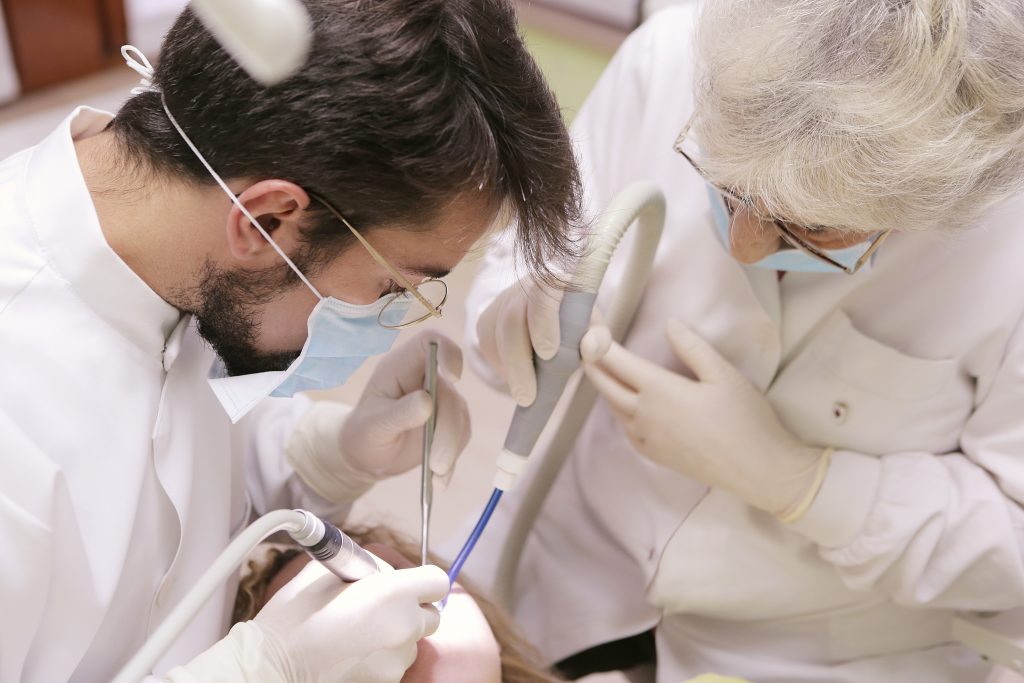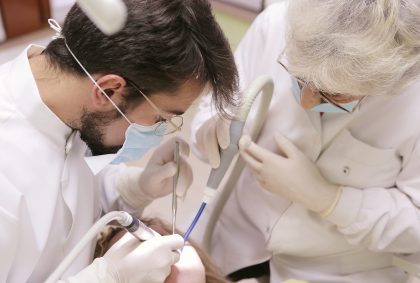Dentists – Who Doesn’t Know Them?
Dentists – as the name suggests – deal with teeth and belong to the so-called human medical field. In addition to routine tasks such as treating incoming patients, pain patients must also be treated, who often come to the practice without an appointment and want to be relieved of their toothache. Dentists examine patients, make findings, diagnose tooth, mouth and jaw diseases including anomalies in the position of the teeth, determine therapeutic measures and carry out dental treatments and interventions.
Do You Know Exactly What An Employed Dentist Actually Does?
Daily tasks include activities such as prevention, treatment and aftercare of the oral and dental areas. The tasks of a dentist include not only the teeth, but also, for example, the jaw or the gums. However, different tasks also come about with different patients. The age structure in particular is a decisive factor.
While the focus of children and young patients is mainly on tooth care and prevention, an employed dentist has to meet significantly higher standards for patients with increasing age. Basically, a dentist not only reacts to short-term problems, but also acts preventively with foresight in order to protect patients from future harm. To do this, it may be necessary, for example, to replace a tooth completely or in part.
Furthermore, the dentist vacancies can not only call for the “general” dentist, but lead to further specializations. These specializations can therefore be in the direction of periodontology or facial epithetics. In this respect, the field of duties of a dentist can be broad or restricted to a certain field through specialization.

The Doctor Is Trusted, Not The Seller
It is not for nothing that the professional code of dentists explicitly states “Dentistry is not a trade”, because only if the patient can assume that he is going to a doctor and not to a salesman will he trust this doctor and his advice. And yet modern dentistry runs the risk of increasingly becoming a business.
Ethics In Dentistry
It Got The Following Order Of Descending Priority:
- life and health of the patient
- adequate and painless functioning of the chewing apparatus
- patient autonomy
- preferred treatment strategies of the individual dentist and the dental profession as a whole
- aesthetic values
- cost of treatment for the patient
- external factors, from the patient’s lifestyle to problems of distributive justice when resources are scarce.
The list of priorities described provides an impressive example of the fact that such decisions are largely dependent on the respective social and cultural context. In liberal social systems, patient autonomy is likely to be weighted more heavily than in communitarian ones; The assessment and classification of financial aspects also depends on the economic framework and the proportion of people with compulsory insurance.
In particular, application-related (i.e. clinically-oriented) engagement with dental ethics should – in analogy to medicine – have the following six goals in mind
- the sensitization for the relevant question in dentistry,
- the motivation of dentists to examine the everyday working life for prevailing values,
- the development of one’s own moral attitude,
- the development of the competence to judge ethical problem cases in a differentiated manner and to do so discuss,
- imparting skills and abilities in the field of ethics and
- their implementation in practical work.
